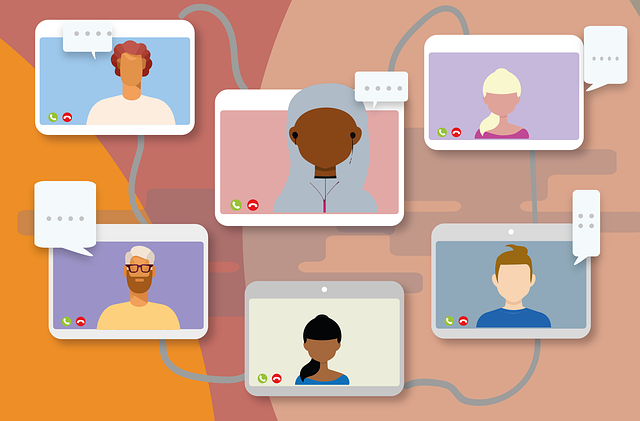Streamline Clinic Workflow: Phone Support for Efficient Call Handling

Clinics can enhance efficiency and patient care by outsourcing administrative tasks like phone calls…….
In the dynamic world of healthcare, efficient patient care and administrative management go hand in hand. At the forefront of this synergy is Practice Management Call Support, a critical component ensuring smooth operations within medical practices, clinics, and hospitals worldwide. This comprehensive guide aims to explore every facet of Practice Management Call Support, from its foundational elements to its global impact, economic implications, technological innovations, and future prospects. By delving into these depths, we hope to equip readers with a profound understanding of this essential healthcare backbone.
Definition: Practice Management Call Support (PMCS) refers to the strategic processes and technologies designed to optimize patient communications, schedule management, billing, and overall operational efficiency within healthcare settings. It involves centralized call centers or dedicated teams that handle a multitude of administrative tasks, freeing up medical professionals for direct patient care.
Core Components:
Historical Context: The concept of PMCS emerged in the mid-1980s as a response to growing administrative burdens within healthcare institutions. Early call centers focused primarily on scheduling and billing, but with technological advancements, their role expanded to include patient education, follow-up care, and even basic medical advice. Today, PMCS is an integral part of modern healthcare systems, especially in regions with high patient volumes and limited resources.
Significance: Its importance lies in several key areas:
PMCS has left an indelible mark across diverse regions:
| Region | Impact and Trends |
|---|---|
| North America | Leading the global PMCS market, the US witnesses high adoption rates due to its mature healthcare infrastructure. Recent trends include integration with telemedicine and AI-driven chatbots for enhanced patient support. |
| Europe | Striving for interoperability across nations, European countries are implementing standardized systems to facilitate cross-border patient care. Telemedicine is gaining traction, especially in rural areas, thanks to PMCS innovations. |
| Asia Pacific | Rapidly growing healthcare sectors in countries like China and India drive demand for PMCS solutions. Mobile-first approaches cater to a tech-savvy population, while call center automation reduces labor costs. |
| Middle East & Africa | With expanding healthcare systems, these regions are witnessing increased adoption of PMCS to improve access and quality of care. Cloud-based solutions offer scalability and cost-effectiveness. |
| Latin America | Overcoming challenges in healthcare infrastructure, countries like Brazil and Mexico are embracing PMCS to streamline operations in public and private sectors alike. |
Market Dynamics: The global PMCS market is experiencing steady growth, projected to reach USD 5.2 billion by 2027 (Source: Grand View Research). This expansion is driven by rising healthcare expenditure, aging populations, and the need for efficient, cost-effective solutions.
Investment Patterns: Private equity firms and venture capitalists are increasingly investing in PMCS startups, recognizing their potential to disrupt traditional healthcare models. Cloud-based and software-as-a-service (SaaS) offerings are gaining traction due to their scalability and flexibility.
Economic Impact:
Technological innovations are revolutionizing PMCS:
Global Regulatory Landscape: PMCS operations are subject to varying legal frameworks worldwide:
Regional Variations:
| Region | Key Regulatory Focus |
|---|---|
| North America | HIPAA, Gramm-Leach-Bliley Act (GLBA) for data security; Medicare and Medicaid regulations for billing. |
| Europe | GDPR, ePrivacy Directive for data protection; Medical Device Regulations for equipment and software. |
| Asia Pacific | Personal Data Protection Act (PDPA) in various countries; Australia’s Privacy Act 1988. |
| Latin America | Similar to North America, with regional variations like LGPD in Brazil. |
Despite its benefits, PMCS faces several challenges:
Strategies for Overcoming Challenges:
UCHC, a large urban clinic, implemented a PMCS system to manage its growing patient base. Key outcomes:
RHN, serving remote communities, adopted PMCS to overcome staffing shortages and logistical challenges. Results:
HoH, a non-profit network in sub-Saharan Africa, implemented PMCS to streamline operations despite limited resources. Achievements:
The horizon for PMCS is brimming with opportunities:
Practice Management Call Support is a dynamic force shaping the future of healthcare delivery worldwide. Its ability to streamline administrative processes, improve patient experiences, and enhance clinical efficiency makes it an indispensable component of modern healthcare systems. As technology advances and global health landscapes evolve, PMCS will continue to adapt and innovate, ensuring better patient outcomes and more sustainable healthcare practices.
Q: How does PMCS benefit patients?
A: PMCS improves patient experiences by simplifying appointments, providing quick access to information, and offering convenient billing options. It also facilitates remote follow-up care through telemedicine integration.
Q: Can PMCS reduce healthcare costs?
A: Absolutely! By automating routine tasks, improving scheduling efficiency, and enhancing revenue cycle management, PMCS can lead to significant cost savings for healthcare providers.
Q: Are there security risks associated with PMCS?
A: Yes, protecting patient data is a top priority. Strict adherence to data privacy laws, robust cybersecurity measures, and employee training are essential to mitigate risks.
Q: How does PMCS address interoperability challenges?
A: Interoperability can be improved through standardized data exchange protocols and the adoption of open APIs. These enable seamless communication between different healthcare systems, including PMCS platforms.
Q: Can PMCS help in rural healthcare settings?
A: Certainly! Telemedicine integration within PMCS solutions expands access to care for patients in remote areas, while cloud-based systems offer cost-effective and scalable solutions to rural healthcare providers.

Clinics can enhance efficiency and patient care by outsourcing administrative tasks like phone calls…….

Running a clinic requires efficient practice operations support to navigate administrative tasks and…….

Clinics face challenges with administrative tasks like scheduling, lead management, and record keepi…….

Smaller clinics struggle with administrative overload hindering patient care. Phone-based support se…….

Clinic admin call services streamline schedules, reduce staff workload, and enhance efficiency throu…….

Phone-based practice admin support calls automate clinic tasks, freeing staff to focus on patient ca…….

Clinics face administrative challenges impacting efficiency and patient care. Traditional methods bu…….

Phone-based administrative services revolutionize clinic scheduling and lead handling, freeing staff…….